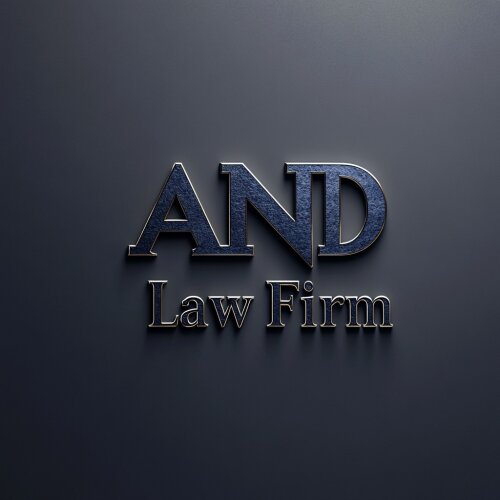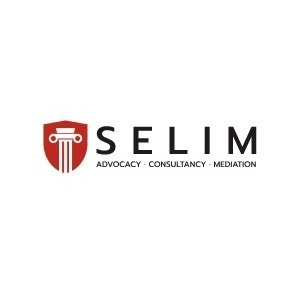Best Toxic Tort Lawyers in Turkey
Share your needs with us, get contacted by law firms.
Free. Takes 2 min.
Or refine your search by selecting a city:
List of the best lawyers in Turkey
About Toxic Tort Law in Turkey
Toxic tort law in Turkey deals with legal claims by individuals who have suffered exposure to hazardous chemicals or substances leading to adverse health effects. This field of law involves complex cases often related to industrial pollution, chemical spills, defective pharmaceuticals, or toxic substances in consumer products. As environmental and consumer protection awareness grows in Turkey, so does the significance of toxic tort claims to ensure accountability and compensation for affected individuals.
Why You May Need a Lawyer
Individuals may require a lawyer specializing in toxic tort law in several scenarios, including:
- Exposure to harmful substances at the workplace leading to chronic health conditions.
- Living in proximity to industrial facilities that may emit dangerous pollutants.
- Health issues arising from prescription medications or consumer products containing toxic substances.
- Experiencing significant medical costs and suffering due to exposure to environmental hazards.
Lawyers can help by evaluating the validity of claims, collecting appropriate evidence, representing clients in negotiations, or advocating in court to secure fair compensation.
Local Laws Overview
The legal framework regarding toxic torts in Turkey involves several key regulations and principles:
- Environmental Law: Turkey's Environmental Law sets the framework for environmental protection and regulations on emissions and waste management, aiming to prevent pollution and mitigate damage to health and the ecosystem.
- Civil Code: The Turkish Civil Code offers general provisions for personal injury claims, which form the basis of toxic tort litigation, allowing individuals to seek reparations for damages.
- Labor Law: Providing protection for workers, the Labor Law in Turkey mandates safe working conditions, which can be invoked in toxic tort cases involving occupational exposure.
- Consumer Protection Law: This law defends consumer rights in cases where defective products expose users to harmful chemicals.
Frequently Asked Questions
What is a toxic tort?
A toxic tort is a legal claim arising from exposure to a harmful substance that causes health effects, such as chemicals, pharmaceuticals, or environmental pollutants.
Who can file a toxic tort lawsuit?
Individuals who have suffered injuries or illnesses due to exposure to toxic substances can file a lawsuit, including workers, residents near industrial areas, and consumers.
What compensation can I seek in a toxic tort case in Turkey?
Compensation may cover medical expenses, lost wages, pain and suffering, and in some cases, punitive damages, depending on the nature and severity of the exposure and harm.
How are toxic tort cases proven in court?
Proof typically requires demonstrating that the exposure to the toxic substance directly caused the illness or injury, often relying on expert testimonies, scientific evidence, medical records, and documented exposure levels.
Are there time limits for filing a toxic tort claim in Turkey?
Yes, the statute of limitations for toxic tort cases generally allows for a certain period after discovering the harm to file a claim, but this timeframe can vary depending on the specifics of the case.
Can multiple parties be held liable in toxic tort cases?
Yes, in many toxic tort cases, liability might be shared among multiple entities, such as manufacturers, employers, or property owners, depending on their role in the exposure.
What if the exposure occurred at my workplace?
If exposure happened at work, employees might claim worker's compensation benefits or file a lawsuit against negligent employers or third parties responsible for the exposure.
How important is expert testimony in toxic tort cases?
Expert testimony is crucial in toxic tort cases to establish the link between exposure and health effects, helping to substantiate claims scientifically and legally.
Can government agencies provide assistance?
Government bodies like the Ministry of Environment and Urbanization may assist by regulating environmental safety standards and investigating non-compliance issues, but they do not provide direct legal support in individual claims.
Is it possible to settle a toxic tort case out of court?
Yes, many toxic tort cases are resolved through settlements outside court, with the assistance of legal counsel to negotiate fair terms and compensation.
Additional Resources
For those seeking additional information or support regarding toxic torts in Turkey, the following resources can be invaluable:
- Ministry of Environment and Urbanization: Provides information on environmental policies and regulations.
- Turkish Bar Association: An excellent resource for finding qualified lawyers specializing in toxic tort law.
- Local Environmental NGOs: Groups focusing on environmental advocacy may offer guidance or support for those affected by pollution or industrial hazards.
Next Steps
If you believe you have grounds for a toxic tort claim in Turkey, consider the following steps:
- Document Everything: Gather all pertinent information regarding your exposure, medical records, and any related costs or losses.
- Seek Medical Evaluation: Ensure you have a thorough medical assessment to document potential health impacts related to the exposure.
- Consult a Lawyer: Engage a lawyer experienced in toxic tort cases to evaluate your case and determine the best course of action.
- Understand Your Rights: Familiarize yourself with applicable laws and procedures to safeguard your entitlement to compensation and remedy.
Lawzana helps you find the best lawyers and law firms in Turkey through a curated and pre-screened list of qualified legal professionals. Our platform offers rankings and detailed profiles of attorneys and law firms, allowing you to compare based on practice areas, including Toxic Tort, experience, and client feedback.
Each profile includes a description of the firm's areas of practice, client reviews, team members and partners, year of establishment, spoken languages, office locations, contact information, social media presence, and any published articles or resources. Most firms on our platform speak English and are experienced in both local and international legal matters.
Get a quote from top-rated law firms in Turkey — quickly, securely, and without unnecessary hassle.
Disclaimer:
The information provided on this page is for general informational purposes only and does not constitute legal advice. While we strive to ensure the accuracy and relevance of the content, legal information may change over time, and interpretations of the law can vary. You should always consult with a qualified legal professional for advice specific to your situation.
We disclaim all liability for actions taken or not taken based on the content of this page. If you believe any information is incorrect or outdated, please contact us, and we will review and update it where appropriate.
Browse toxic tort law firms by city in Turkey
Refine your search by selecting a city.

















